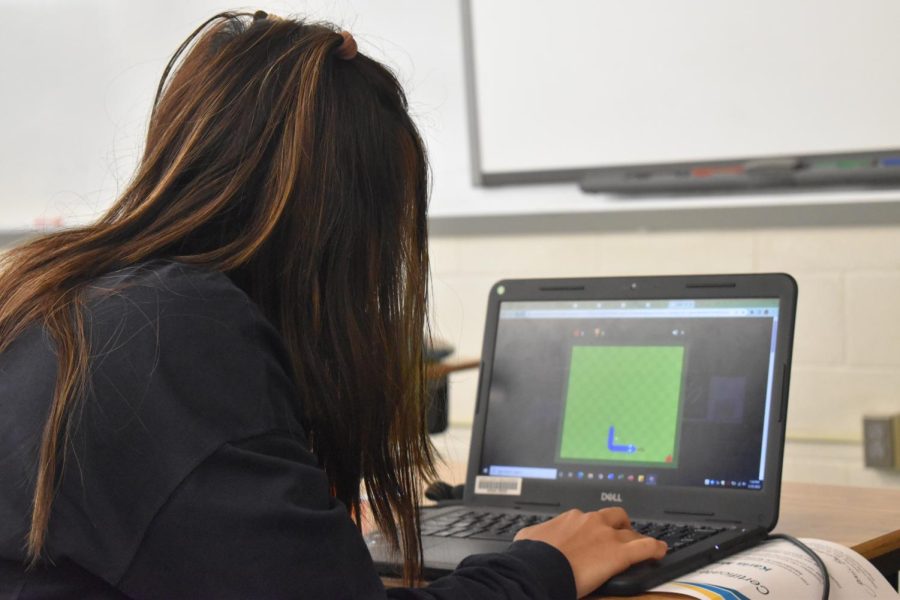Now Is the Time to Fix the Consequences of Distance Learning
Student technology abuse and chronic absences are getting in the way of learning.
An all too common occurrence: A Lewis student is distracted by a game on her school-issued laptop.
May 26, 2022
Lewis High School has always been a pretty welcoming place for students and staff. The teachers are helpful and supportive of the students, and students, overall, also seem to enjoy being here. So with all this positivity, how could students not feel empowered to come to class everyday, eager and ready to learn? In one word: Covid -19.
School attendance has become a major issue this year. I didn’t really notice the issue myself until just recently. Students today have a problem of skipping class and not showing up. The issue was even worse during Covid virtual learning when many students did not bother to log into classes.
This truancy during distance learning could be because students were not being held accountable for attendance in the same way that they were during in-person learning.
Even with the change with Lewis administration, Covid-19 and distance learning have created challenges that still need to be addressed. As we complete a year of in-person learning, a lot of the issues from virtual learning are still present.
For example, while students may be physically present in the classroom, they may not be there mentally. Although this might not be a new issue if a student is bored or tired, they are not there mentally because they may be off task on their computers or even their personal cell phones.
When students use laptops in the classroom, it is difficult for teachers to know where students are virtually at all times. It can be almost impossible to fully monitor what students are doing, especially if they are on a personal device not using the school Wi-Fi.
A student who did not wish to be identified discussed how he would play video games in the back of class while the teacher was teaching. He then said that whenever the teacher would ask him to turn off or close his laptop, he wouldn’t and continued playing the game.
Is this situation fixable? It depends. It can be hard to change something if students aren’t willing to accept the changes being proposed. Some schools require students’ cell phones to be placed in storage bags that disable phone access except in emergencies. Adapting this policy would allow for students to still have their phones; they would be used only for urgent situations.
However, changes like these must be started way earlier than late in the second semester. Maybe it is too late to try a better strategy to keep students in school and on task, but it may be possible for the administration next year to adopt new policies that make students more active participants in the Lewis High School community.
Students should have access to technology. In today’s day and age, that is a given. However, there needs to be stricter policies as to how to handle the improper use of technology, even if it’s something as seemingly minor as playing a video game. While video games are fun outside of class, there should not be any reason for a student to be playing Grand Theft Auto during a math class. Hopefully, the new administration will continue to bring together the Lewis High School family while also embracing virtual technology in a way that supports students’ learning.

